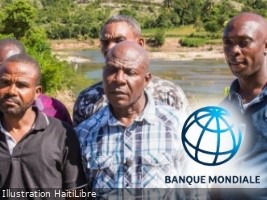Haiti, once the poorest country in Latin America and the Caribbean, faced severe challenges in its agricultural sector, with 27% of rural farmers living in extreme poverty and grappling with acute food insecurity. In response, the World Bank launched the Emergency Project for Resilient Agriculture for Food Security (PARSA), adopting an integrated approach to address these issues. The initiative combined sustainable land management, climate-resilient agricultural practices, and disaster risk reduction to improve natural resources, combat soil erosion, and enhance water retention capacity. This strategy was tailored to Haiti’s unique agroecological context, aiming to generate sustainable income for rural communities. The project emphasized community participation, developing participatory and investment plans for sub-watersheds and providing subsidies for improved technical input packages. Through farmer field schools, farmers were introduced to advanced agricultural technologies and landscape management practices, selected via community involvement. The initiative achieved significant positive impacts, including poverty reduction, climate action, and enhanced resilience against flooding and landslides. Over 4,267 farmers adopted improved technologies, with 38% being women, and more than 80% gained better market access. Additionally, 2,050 hectares were managed sustainably, and 112 farmer field schools were established, benefiting 2,800 farmers. The project also created 6,667 temporary jobs and supported 20 sub-projects through matching grants, improving market linkages and production quality. Following the devastating 2021 earthquake, the emergency response component provided critical support to 137,611 farmers, including climate-resilient crop varieties and seeds. Despite ongoing challenges, the Haitian government, with the World Bank’s support, continues to implement projects like PARSA and RPT II to strengthen productivity, livelihoods, and food security for rural households.
